2O36 campaign charts bold course for Emory’s future

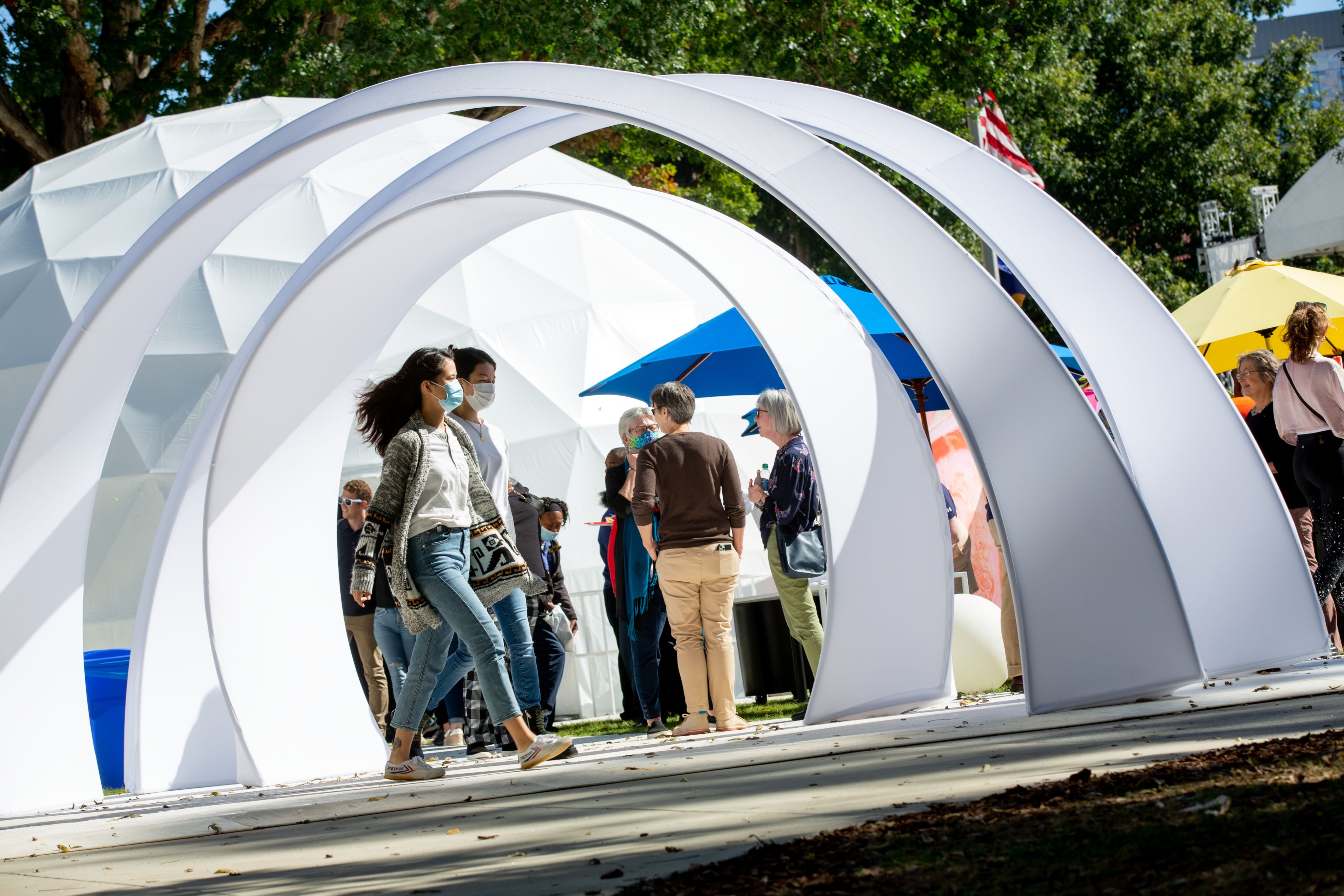
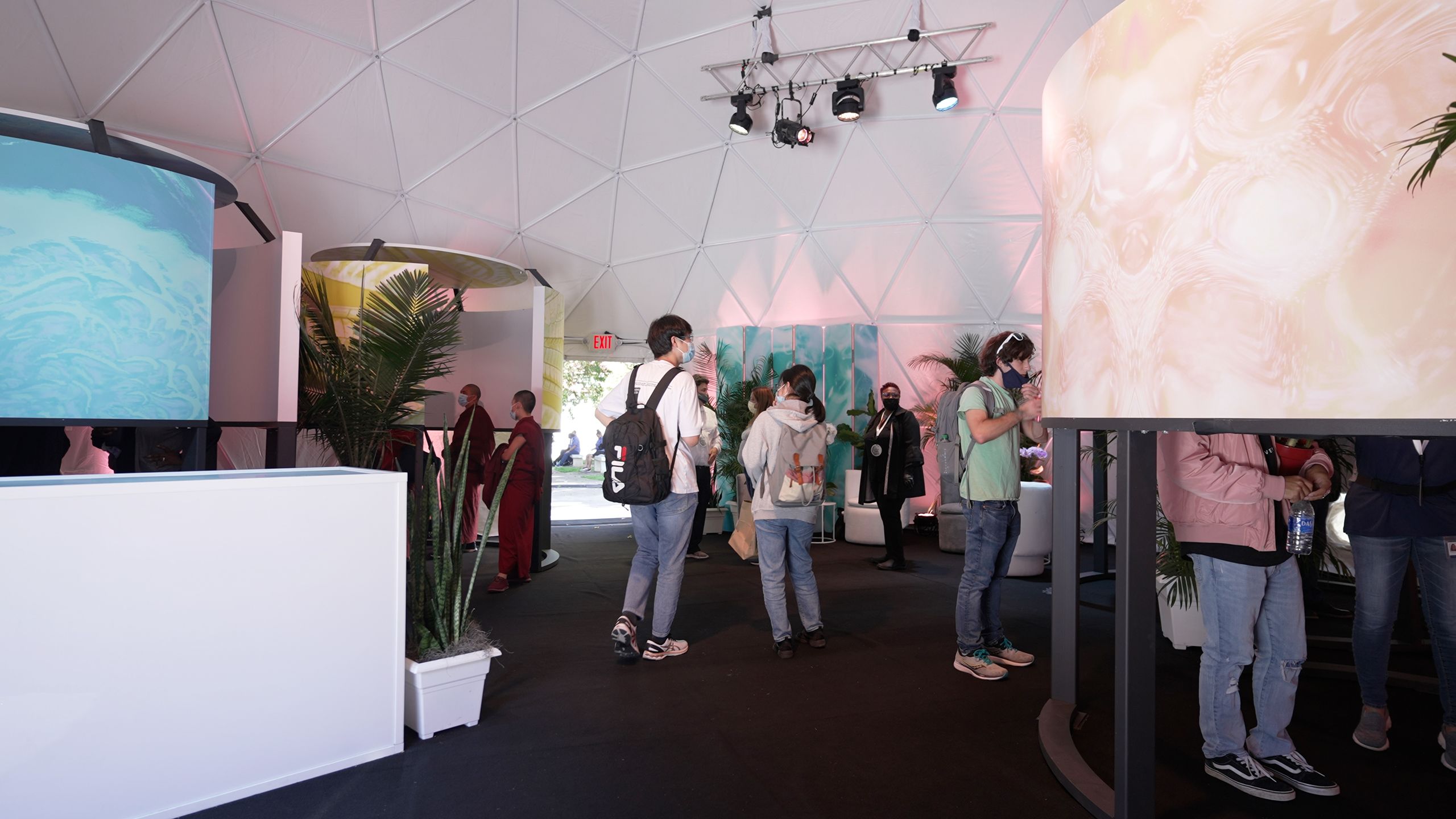


“The future starts now. The future starts with you.” These words from President Gregory L. Fenves resonated across the Quad at last week’s 2O36 campaign launch celebration. During his speech, Fenves encouraged the entire community to think about their role in shaping the future of Emory, Atlanta and the world.
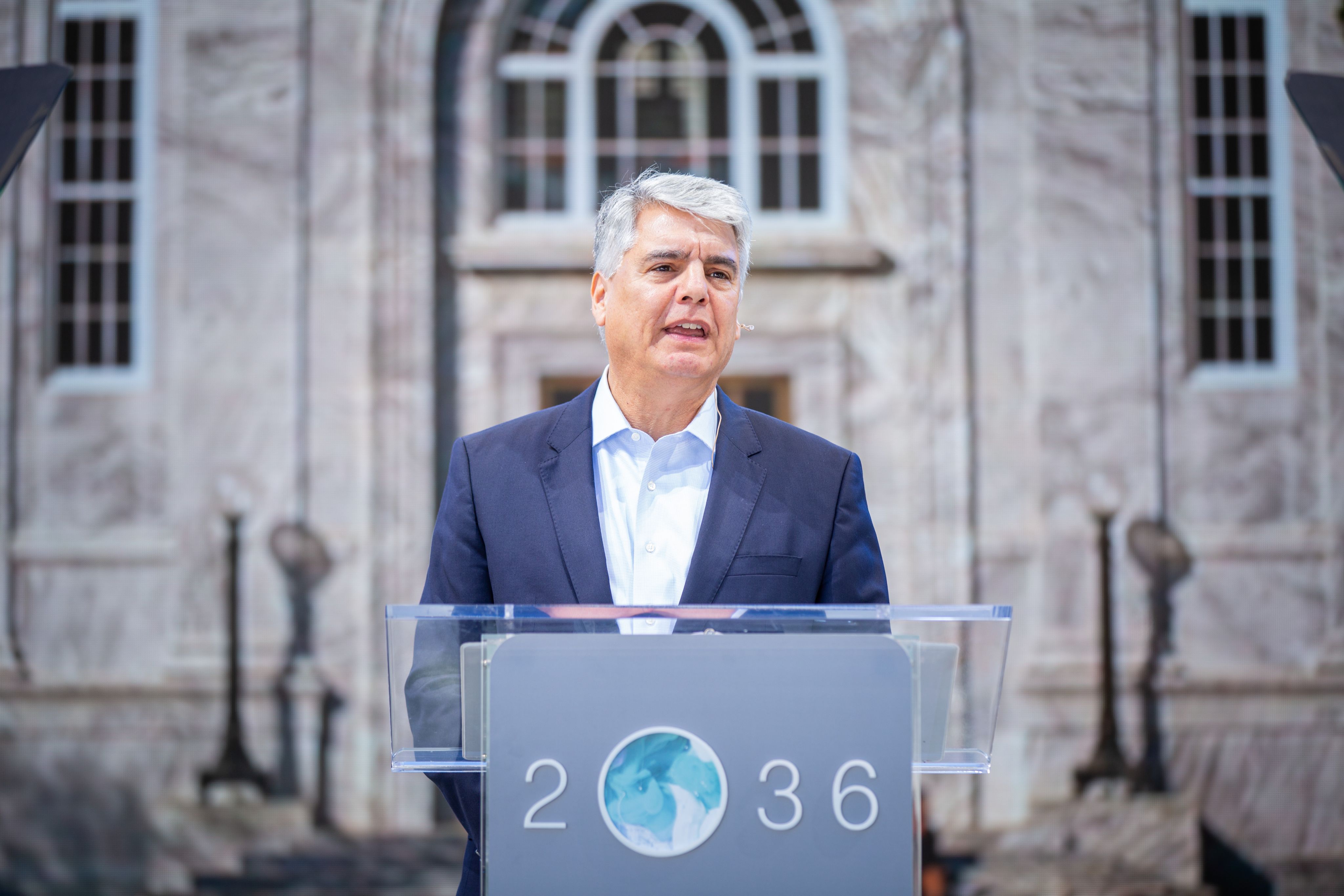
Emory President Gregory L. Fenves
Emory President Gregory L. Fenves
“Emory is a world-class institution, and we are ready to write a new chapter in the history of our university,” Fenves told those attending the Oct. 22 event. “The 2O36 campaign is all about forging partnerships with our supporters and donors to invest in our people, who will shape our destiny.”
Named for Emory’s bicentennial, 2O36 is about investing in people for the benefit of people. In addition to priorities across all nine schools, multiple centers and institutes, and Emory Healthcare, there are three core areas where the campaign will place special emphasis:
- Student Flourishing: Seeing students realize their potential; preparing them for a lifetime of accomplishment beyond graduation; providing an inclusive environment; valuing each student and enabling them to excel in academics and all aspects of their lives.
- Faculty Eminence: Recruiting and retaining a diverse, top-tier faculty; investing in the faculty’s big ideas and scholarship, and creating a campus where all faculty have the resources and infrastructure to thrive in their research, teaching and service.
- Research Excellence: Launching the next era of Emory excellence in research and discovery to answer the most pressing questions and address the crucial needs of the nation and communities Emory serves.
On the main stage at the launch event, faculty, staff and students shared their unique reasons for giving to the university.
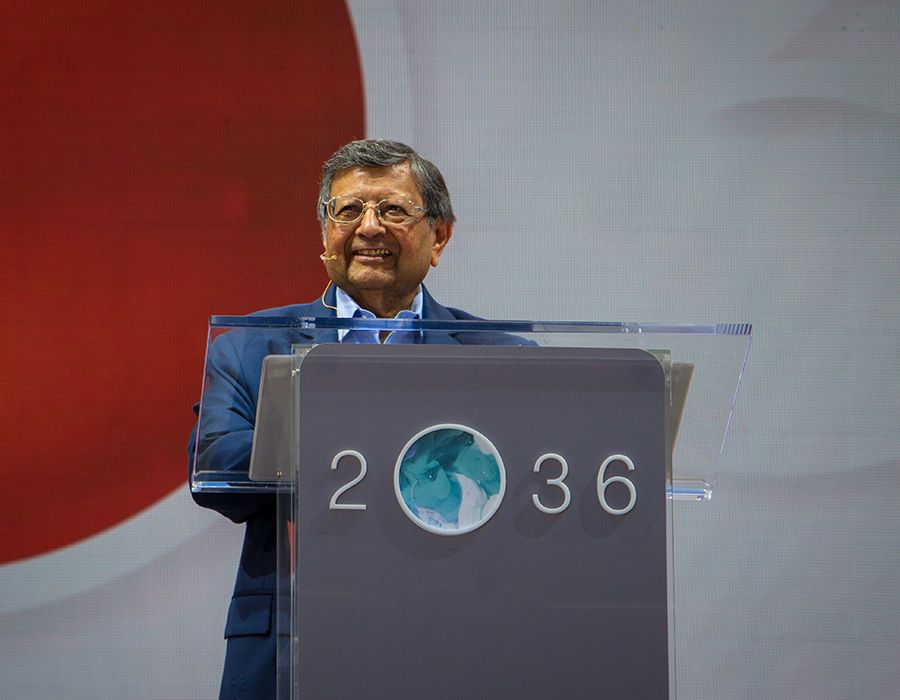
Professor Jagdish Sheth
Professor Jagdish Sheth
Jagdish Sheth, Charles H. Kellstadt Chaired Professor of Marketing, told the crowd that Emory allowed him to go from his childhood in Burma (now Myanmar) to becoming a college professor. Sheth said teaching is his calling and he shared a business anecdote to underscore the message.
“If you take a grain of wheat and make it into a loaf of bread, the value add of the commodity is only about three times,” said Sheth. “If you take a rough diamond, a good diamond cutter will enhance the value by about 20 times. However, if you take a human being and mentor, nurture and educate, the value add is infinite. I am living proof.”
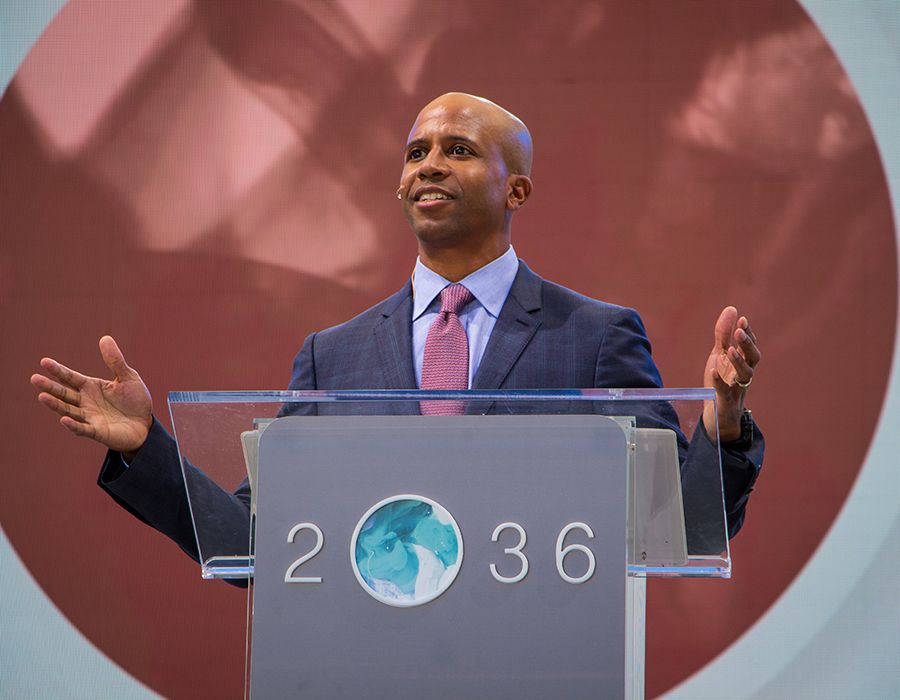
Neurosurgical oncologist Edjah Nduom
Neurosurgical oncologist Edjah Nduom
For Edjah Nduom, a neurosurgical oncologist and associate professor in the department of neurosurgery, Emory paired him with mentors who helped him realize his potential. Nduom came to Emory in 2006 to do a neurosurgery residency. He said that Dr. Nelson Oyesiku, Dr. Mollie Winston-Barrow and department chair Dr. Daniel Barrow helped him get a research grant from the National Institutes of Health. Giving back to Emory allowed him to return the favor.
“I was invited to contribute to a fund for the Daniel Louis Barrow Endowed Chair. A few months later, I learned that Nelson would be the first awardee,” said Nduom. “With one gift, I was able to honor both of my Emory mentors, without whom I wouldn’t have followed the path that ultimately led me here.”
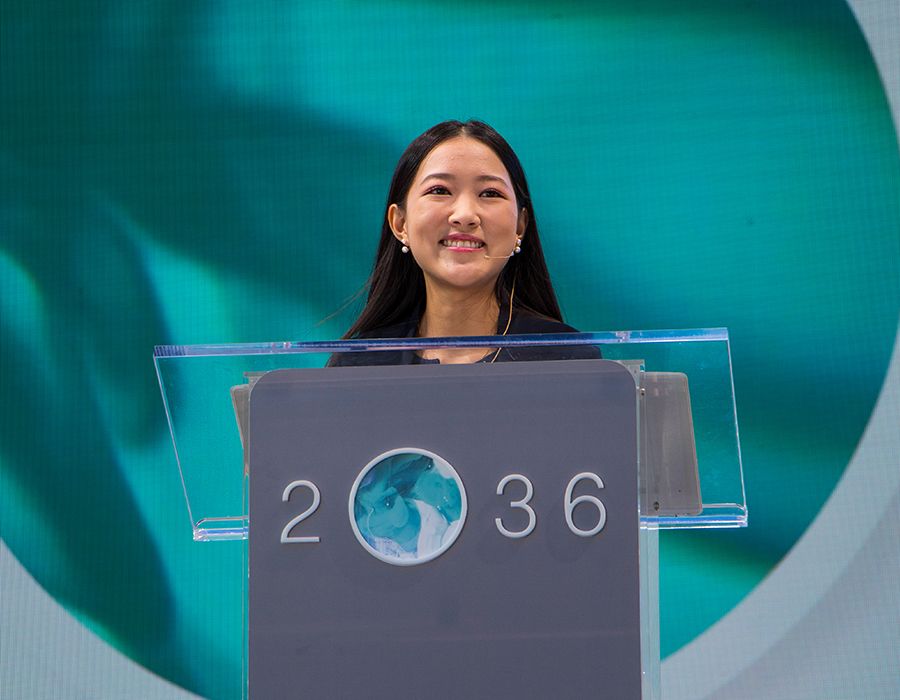
SGA President Rachel Ding
SGA President Rachel Ding
Rachel Ding, president of the Student Government Association, spoke to the student experience, citing the opening of Emory’s first-ever Asian student identity space as a point of pride. She explained that she ran for office as a way of giving back to the Emory community for helping her find her voice. She shared her experience as a student leader during the past year.
"I wasn’t prepared for the politics of the job, the number of all-nighters I’d have to pull, or the truly unprecedented task of leading my student body during a destructive global pandemic,” said Ding, who is a senior pursuing degrees in finance and international studies. “But by embracing, rather than avoiding, these tough situations, I was able to build self-confidence, perseverance and fortitude.”
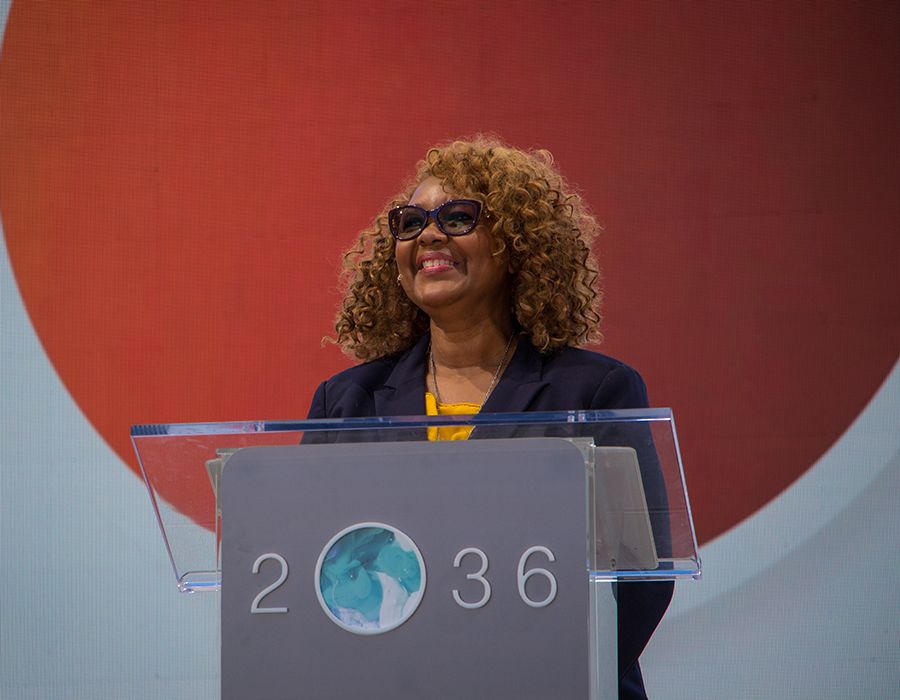
Anita Paye, assistant vice president for finance administration and initiatives
Anita Paye, assistant vice president for finance administration and initiatives
That sense of fortitude inspired Anita Paye, assistant vice president for finance administration and initiatives. She listed Emory’s recent achievements in breast cancer research, confronting the COVID-19 pandemic and expanding the Goizueta Business School’s John Lewis Racial Justice Case Competition.
“Every day I spend at Emory, I get to experience the flavors of a rich culture, I get to savor my involvement in a caring community, and I get to relish being part of an institution that supports faculty, students, researchers and staff in their shared goal of making this world better, together,” said Paye.
To that end, Fenves announced the campaign will add 154 endowed faculty, doubling the current number in an underfunded area. He also emphasized the importance of reimagining and increasing student support by creating more scholarships, revamping career services and doubling down on mental health and well-being.
Fenves concluded by saying, “With the partnership of our greatest supporters, student success becomes student flourishing; competing with the best becomes being the best; and having a research breakthrough becomes having the research breakthrough that changes an entire field. With the success of this campaign, in 2036 we will be a research university without equal in a class of our own.”
For more details about the campaign and a full overview of each school and college’s priorities,
visit 2036.emory.edu.
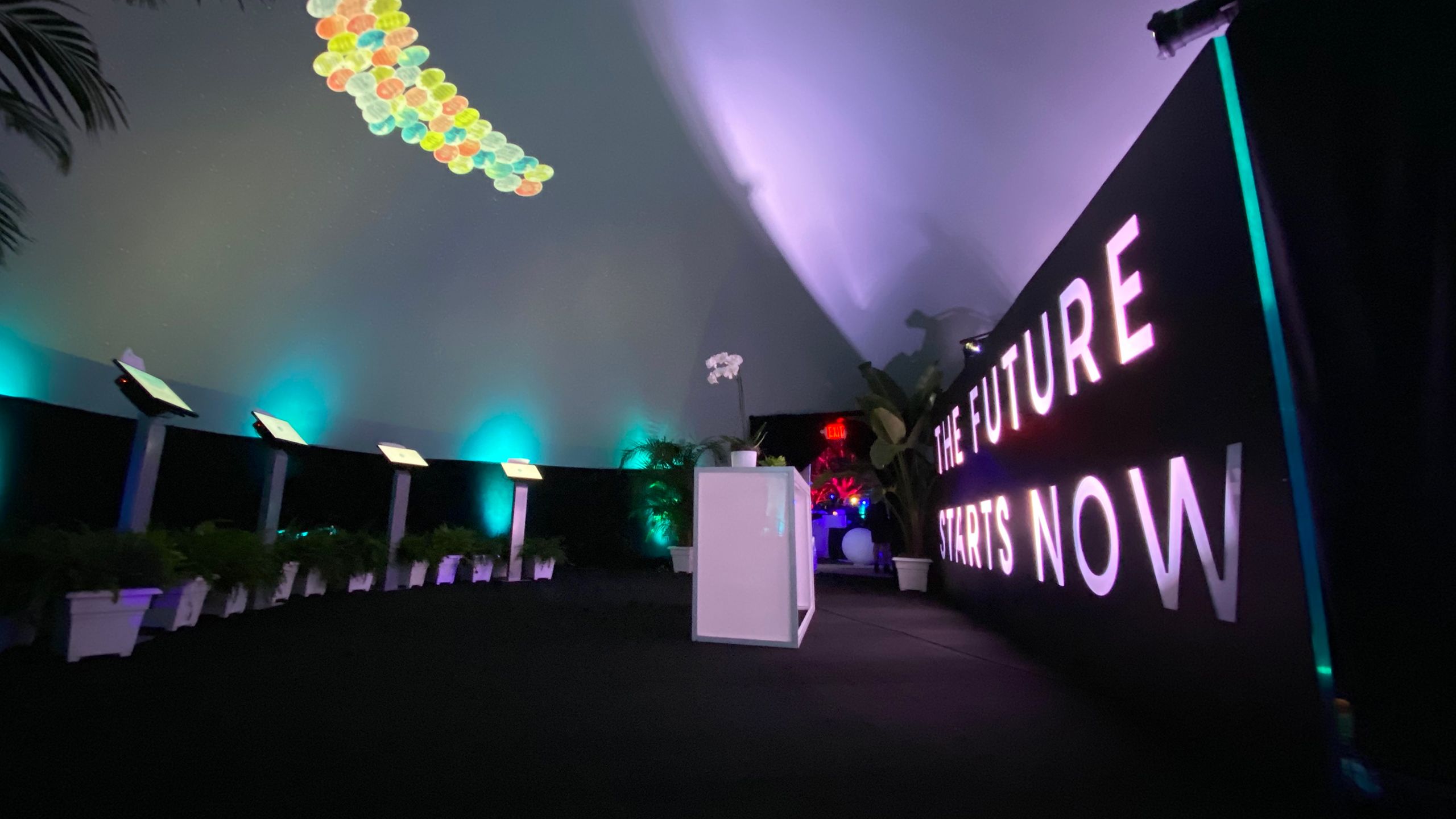
Exploring Emory’s Stories

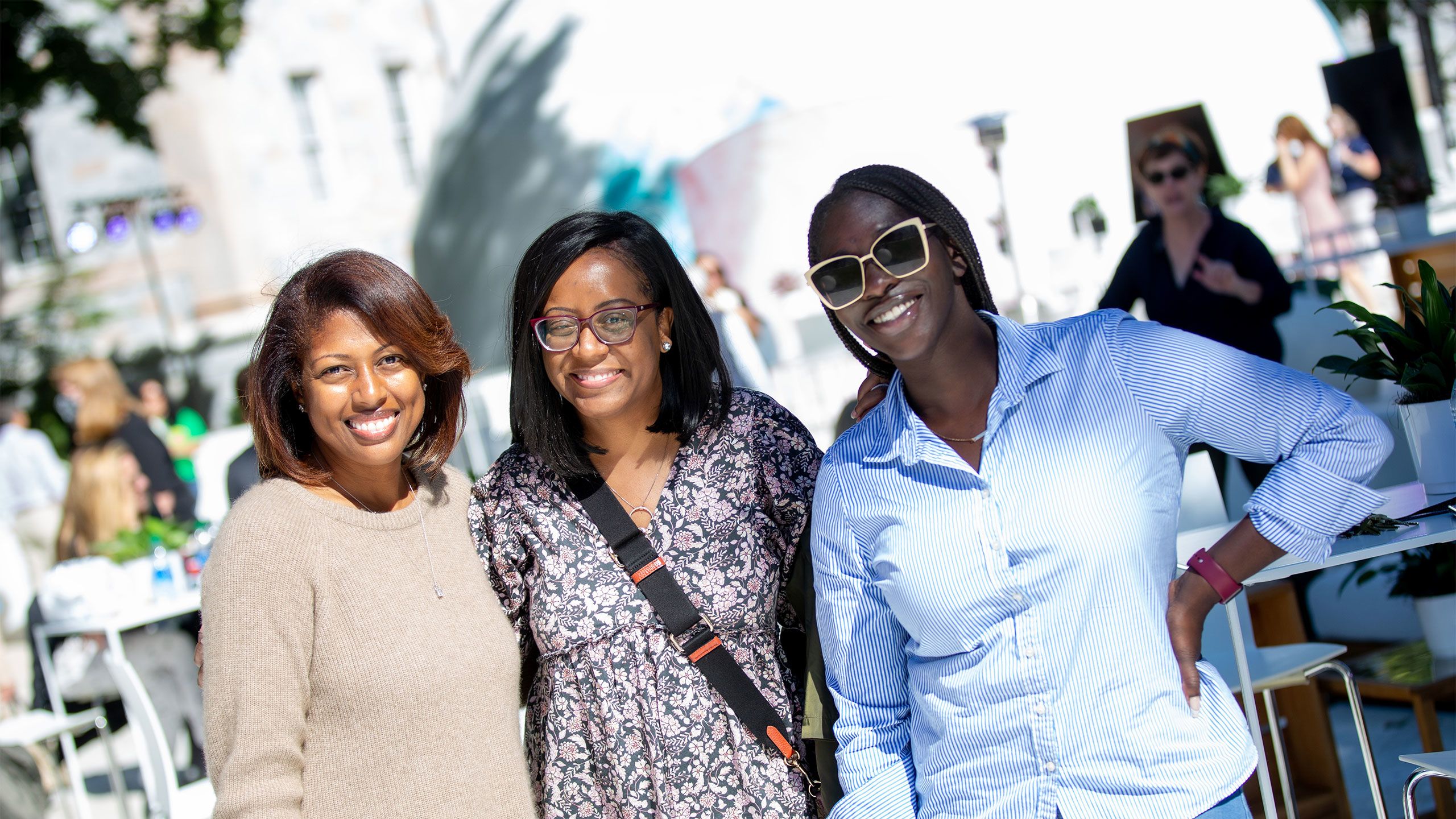
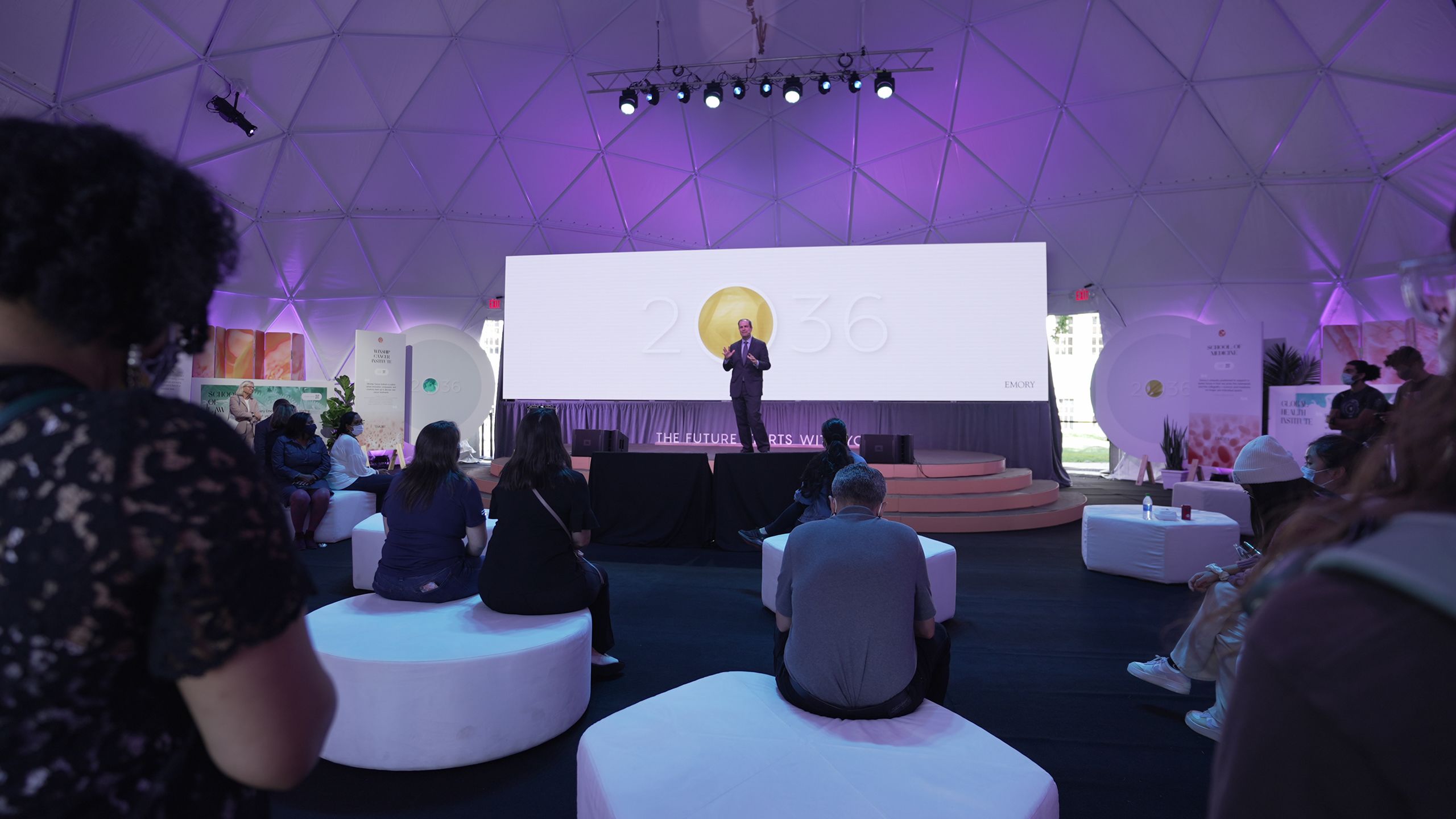
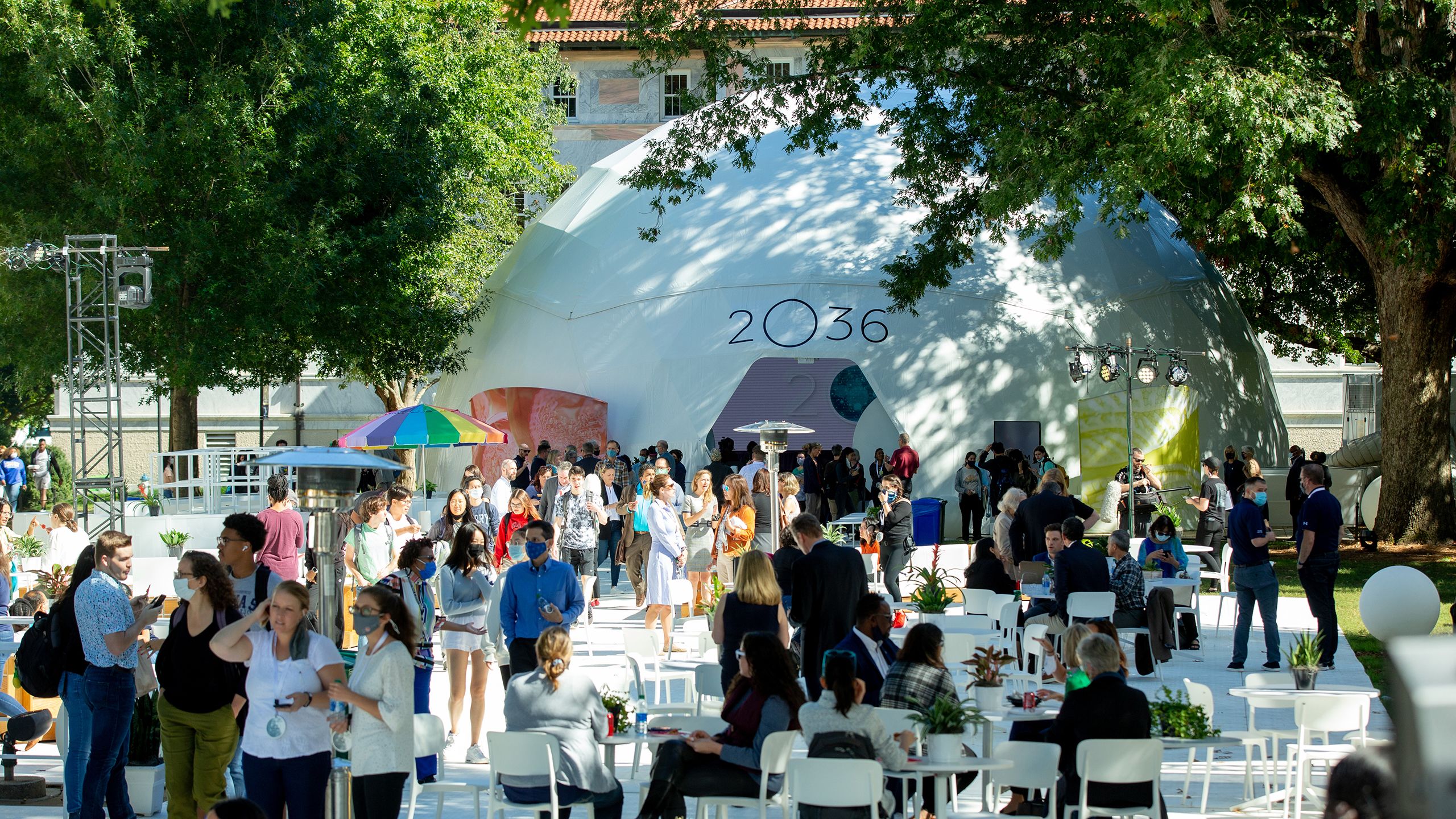



At the 2O36 campaign launch event, attendees interacted with tablets, recording equipment and 3-D models under the five futuristic domes.
Under the large Podium dome, deans and other administrators shared their priorities for the future of Emory. Their goals ranged from new majors to new buildings.
Inside the Gallery dome, visitors saw some of Emory’s most innovative research and programs, from professor Andra Gillespie, executive director of the James Weldon Johnson Institute for the Study of Race and Difference, hosting public dialogues about race, to professor Barbara Rothbaum, associate vice chair of clinical research in the Department of Psychiatry, using virtual reality to help treat post-traumatic stress disorder in post-9/11 military veterans.
Under the Stories dome, participants walked into booths, reminiscent of a recording studio, and shared the ways Emory has impacted their lives. At the Future dome, visitors recorded what they commit to achieve by 2036 and the responses were projected on the ceiling.
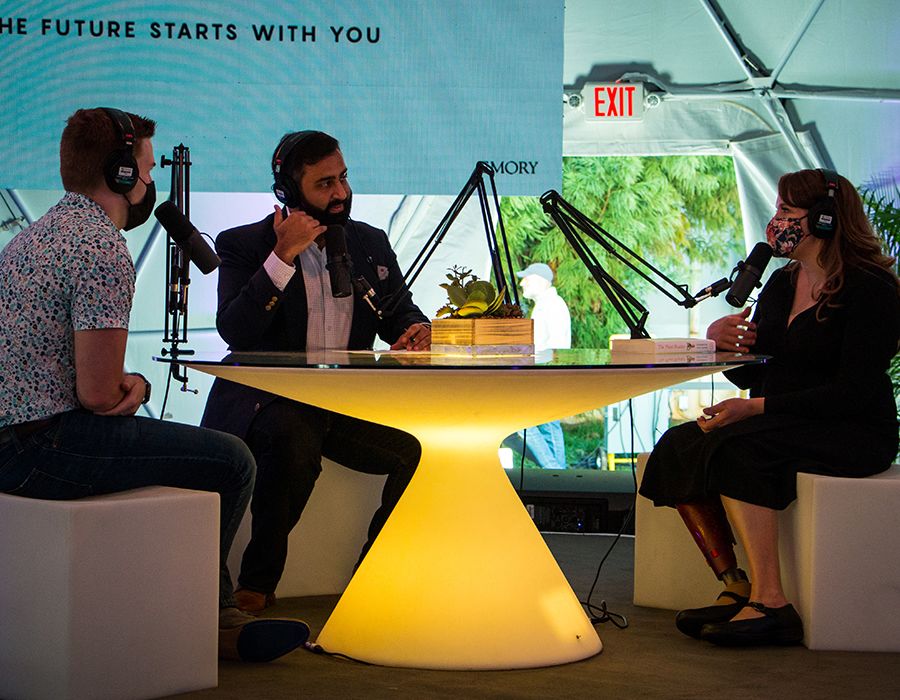
Professor Cassandra Quave records a podcast with student Cutler Cannon, hosted by Munir Meghjani (center), president of the Emory Alumni Board.
Professor Cassandra Quave records a podcast with student Cutler Cannon, hosted by Munir Meghjani (center), president of the Emory Alumni Board.
In the Podcasts dome, attendees heard live sessions with Emory faculty, staff, students and alumni. On Friday, sessions included professor Cassandra Quave sharing her adventures in hunting for plants to heal antibiotic-resistant infections in a conversation with Cutler Cannon, an undergraduate student who is a research assistant in her lab. There was a corresponding display in the Gallery dome featuring her plants.
Also on Friday, 1915 Scholar Xiomara Fernandez discussed the impact of mentoring for first-generation college students with Anna Dix, an Emory alumna who volunteers as a mentor with the program.
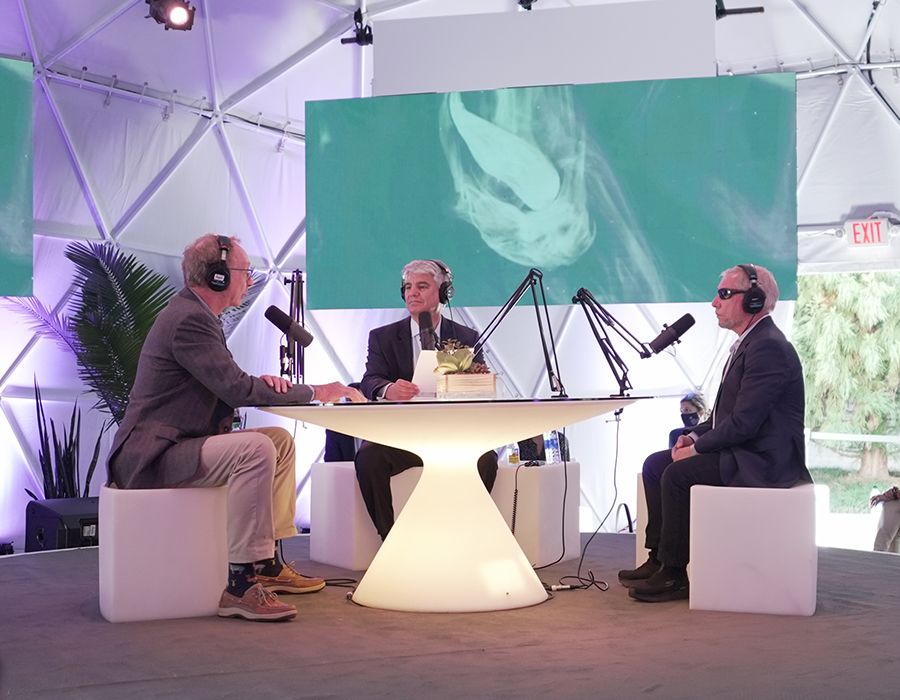
Emory President Gregory L. Fenves (center) hosts a discussion about drug discovery and development with professors George Painter (left) and Dennis Liotta.
Emory President Gregory L. Fenves (center) hosts a discussion about drug discovery and development with professors George Painter (left) and Dennis Liotta.
During the last podcast session, Fenves talked with Emory professors George Painter and Dennis Liotta about drug discovery at Emory and Drug Innovation Ventures at Emory (DRIVE). Emory invented and developed the new oral antiviral drug molnupiravir to treat COVID-19. Liotta and Painter detailed their decades of working together, which also include the discovery and development of drugs that revolutionized HIV treatment, improving the lives of millions of people.
About this story: Story by Kelundra Smith. Photos by Stephen Nowland and Noor Aldayeh. Design by Laura Dengler.
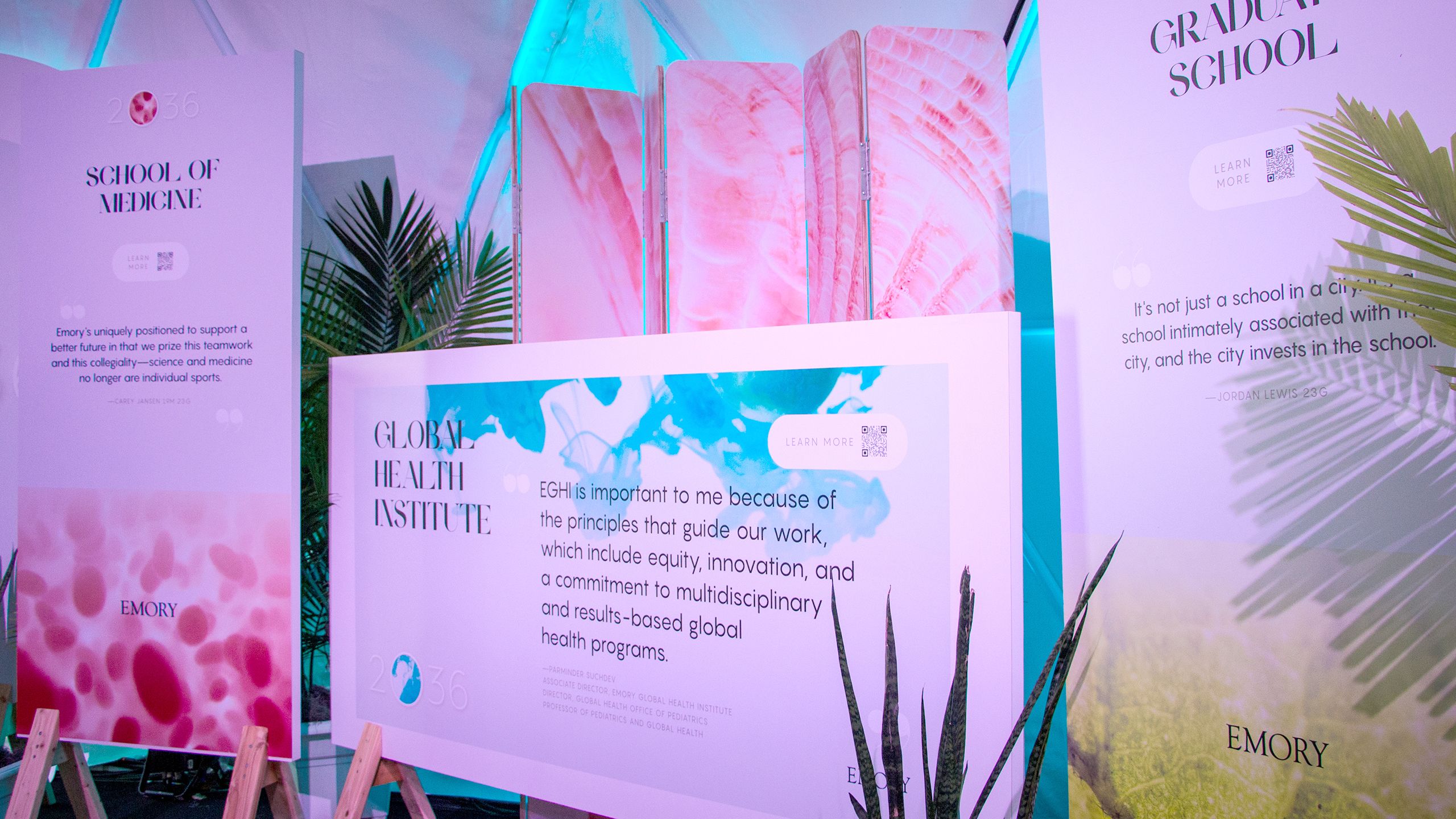
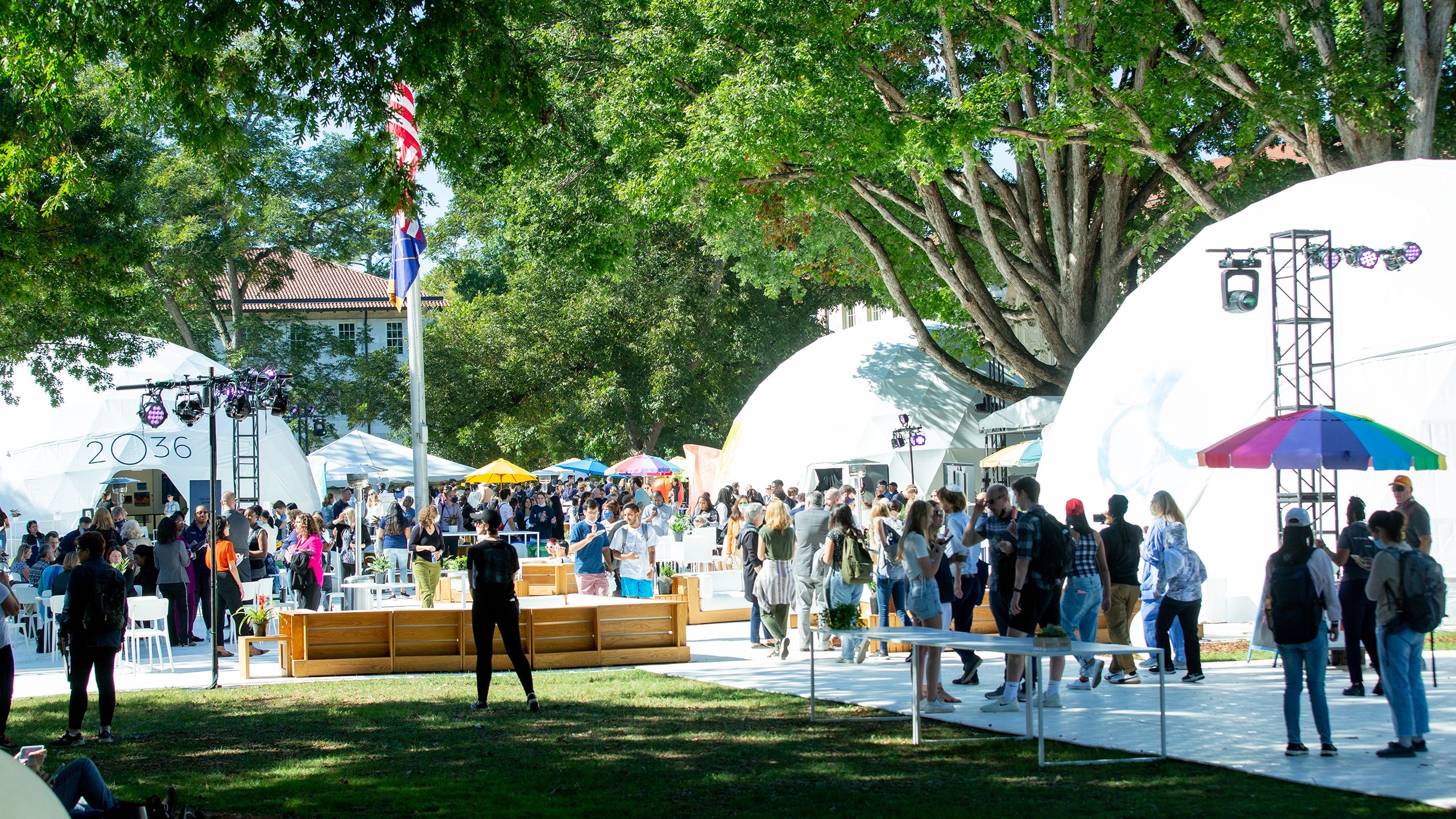
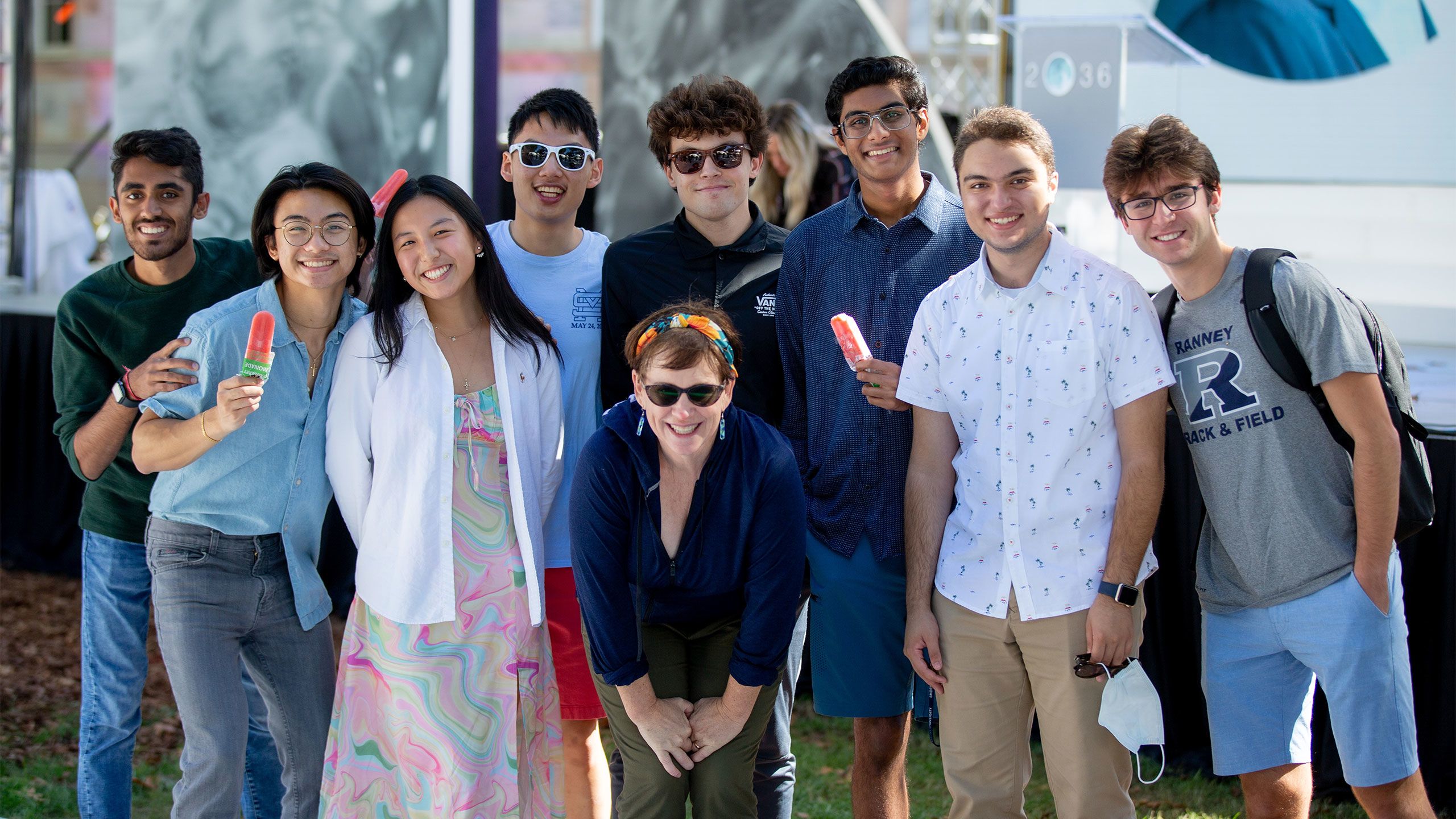
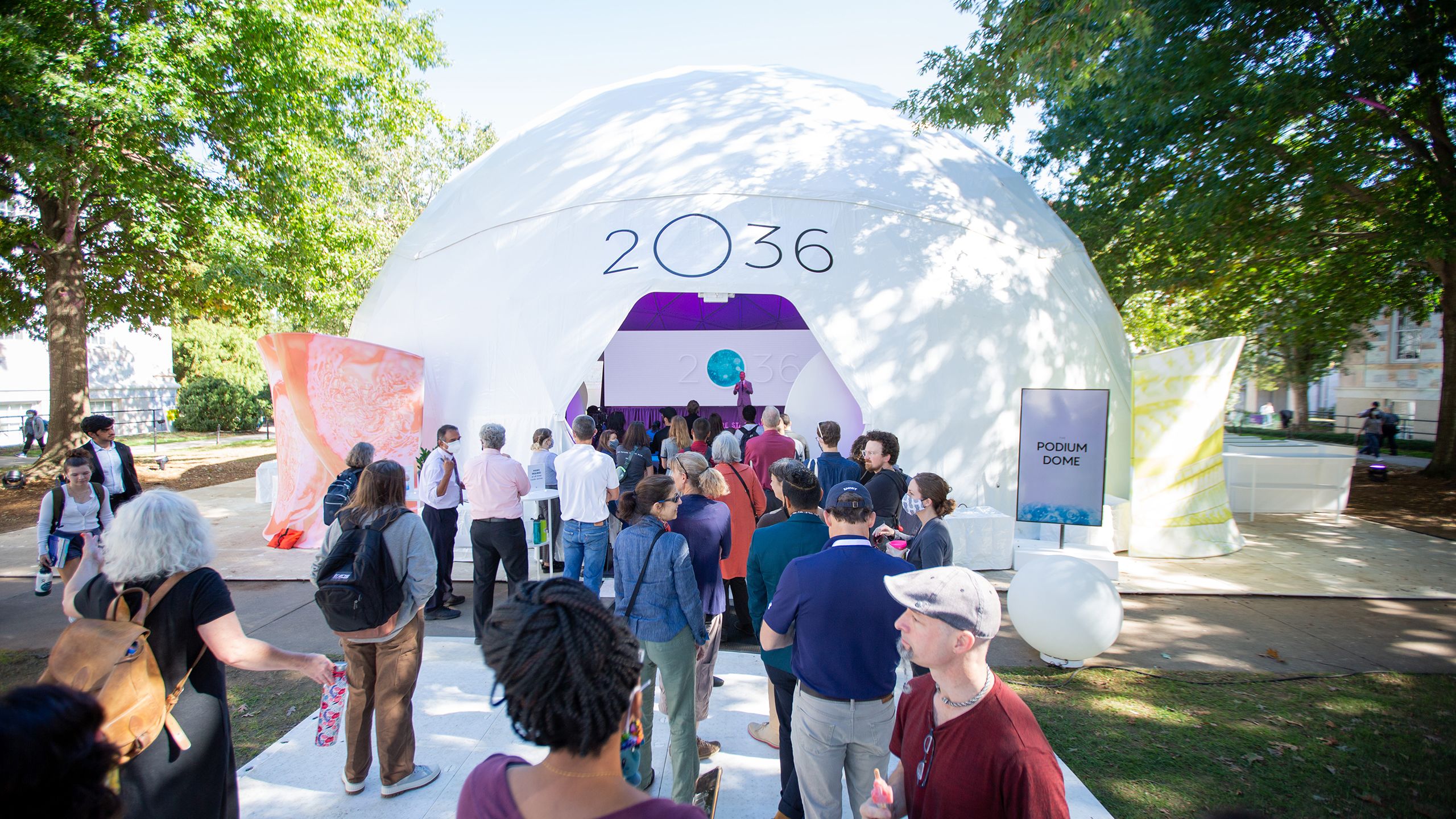
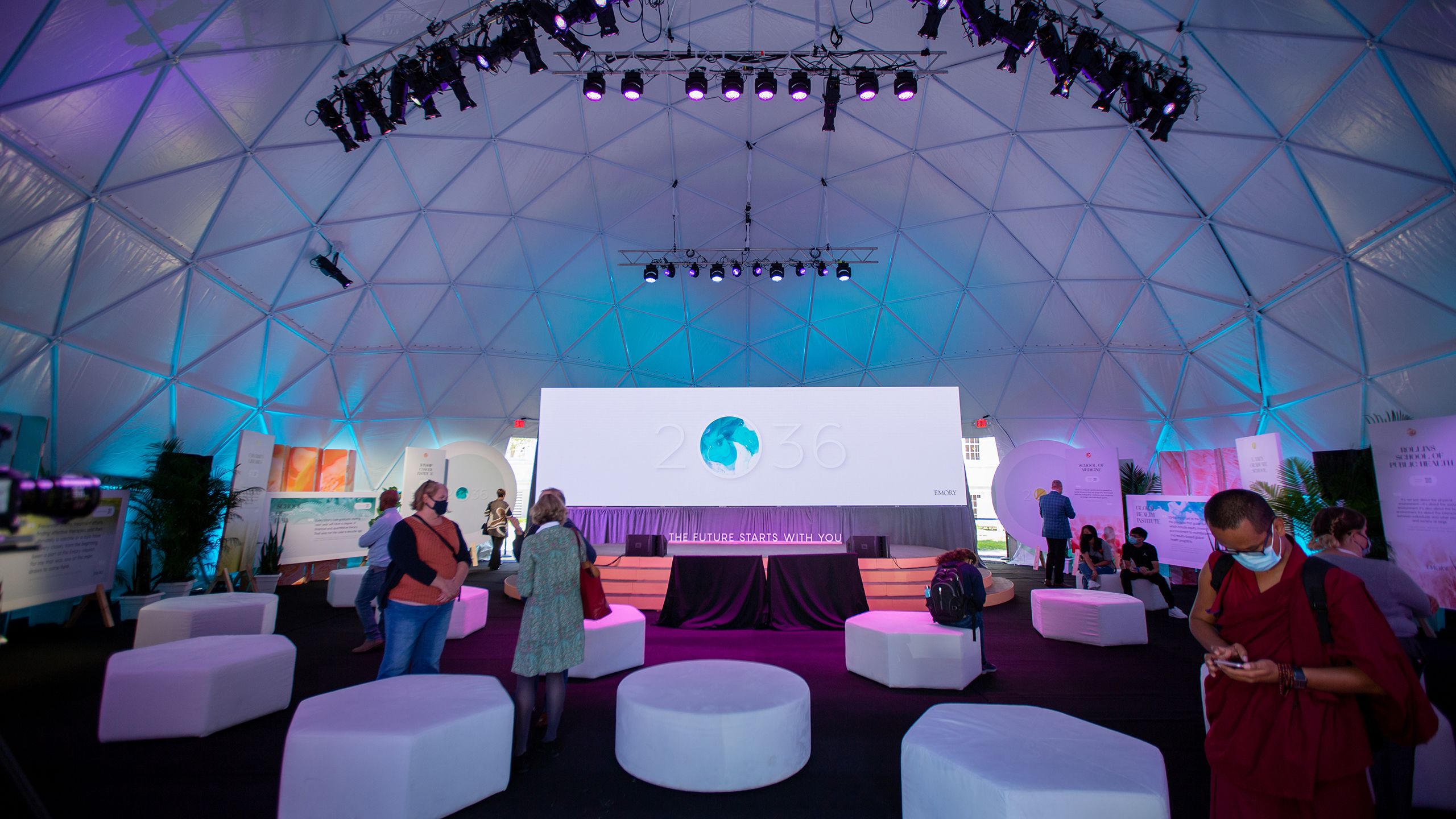
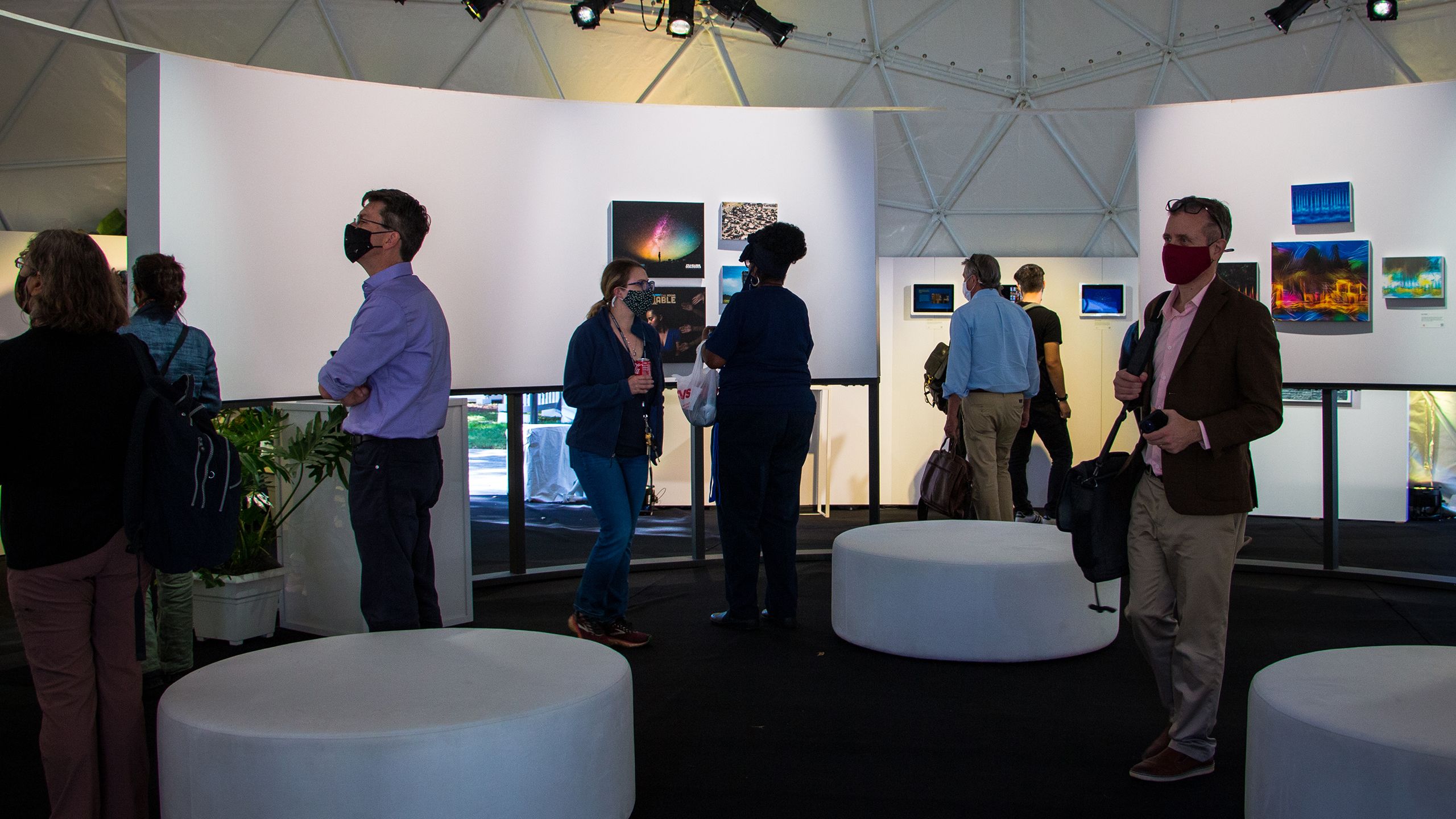





To learn more about Emory, please visit:
Emory News Center
Emory University

